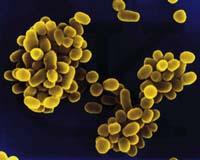Design a brucellosis detection kit

A team of researchers from the University of Navarra has launched a new product for the detection and characterization of the Brucella bacteria. It is the bacteria responsible for brucellosis or malt fever.
Brucellosis is a contagious disease that affects both people and animals. According to the World Health Organization, along with tuberculosis, rabies and anthrax, it is among the neglected diseases related to poverty. Its incidence is high in Africa, Asia, the Middle East and Latin America and its lack of control limits the economic development of many of these countries.
The commercial kit of brucellosis detection, called Bruce-ladder, has been launched in collaboration with the Madrid company Ingenasa. The kit separates all Brucella species, including grafted and isolated strains of marine mammals. To achieve this, researchers have studied the complete genomes of several Brucella species and designed a separation system in a single trial for 24 hours.
Until now, the separation of Brucella was carried out only in laboratories, with difficult biochemical and serological techniques. In addition, handling the bacteria endangered laboratory personnel. Now, with the new system, samples can be analyzed faster and more easily, without the need to manipulate the bacteria. The Kit has been tested in several reference laboratories in France, Belgium and Portugal and validated at the National Reference Centre of Brucellosis in Granada.
Buletina
Bidali zure helbide elektronikoa eta jaso asteroko buletina zure sarrera-ontzian










